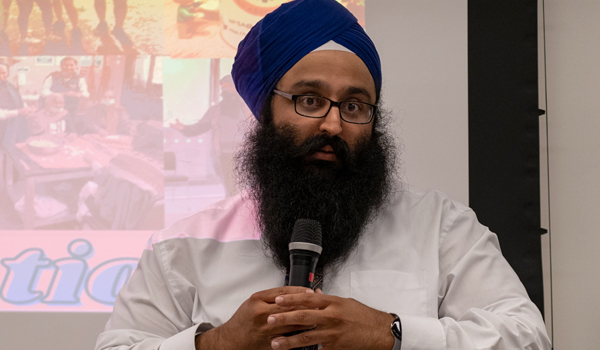Turning the tide against online fraud
Crest Insights, Crest Advisory’s in-house think-tank, has released a new report that considers the evolving fraud threat and calls for a more proactive and strategic approach to tackling it. Manon Roberts examines the research.
As fraudsters ceaselessly and quickly adapt to technological changes and other societal shifts, current policies aiming to prevent and respond to online fraud often struggle to keep up. This has contributed to fraud becoming the most common crime type experienced by victims, currently making up roughly 40 per cent of all crime.
Our report uses future thinking methods to explore possible future developments, and advocates for a forward-thinking approach to policy developments.
Based on an evidence review; 18 interviews with senior stakeholders from law enforcement, non-governmental organisations and academia; and workshops with fraud experts and members of the public, our report makes several suggestions for how fraud could evolve in the future, addressing the role of increased digitalisation, the proliferation and advancement of technologies and global challenges such as pandemics and climate change. The findings are not predictions and do not aim to cover every scenario but instead are intended to stimulate discussion and promote long-term thinking.
Key themes include:
- Increased digitalisation is likely to continue to expand fraud opportunities, by increasing the potential points of entry, for example, through the proliferation of the Internet of Things (IoT) and immersive environments; and by expanding the pool of potential victims, particularly among younger cohorts.
- Technology is likely to continue to lower barriers to entry for fraudsters, with the growth of advanced technologies such as generative artificial intelligence (GenAI), which forms the basis of ChatGPT and deep fakes, facilitating the effortless automated production of realistic and personalised fraud attempts at scale.
- Global challenges such as pandemics and climate change may increase people’s vulnerabilities to fraud, both as victims and perpetrators, by creating more opportunities for fraudsters to profit from moral panic, instability, migration and societal polarisation – for example, climate change could lead to an increase in disaster relief and emergency aid frauds.
- The changing nature of fraud, including the increasingly blurred boundaries between fraud, other forms of serious and organised crime and disinformation, is likely to further increase the threat and have implications for how we respond.
- Existing and emerging technologies also offer significant opportunities to prevent fraud, if leveraged effectively, for example by building in ‘security by design’ through Digital IDs or web 3.0.
To turn the tide against the onslaught of online fraud facing the general public, we argue that the focus needs to shift from reactive responses to a more anticipatory and strategic approach, helping to create a framework that can effectively address emerging threats in the digital landscape.
This concludes the third phase of our research into online fraud and follows previous Crest Insights research, which focused on the impact of online fraud on victims and the policy and practice landscape. The policy and practice report detailed a historic lack of accountability at government level and called for ambitious new targets, the appointment of a new Economic Crime Minister and Fraud Commissioner and the introduction of an annual levy on online platforms.
We hope that this latest report, along with the other reports produced for this programme of work, can play a part in driving change to improve the fraud landscape.
Manon Roberts is Senior Strategy & Insight Manager at Crest Advisory






